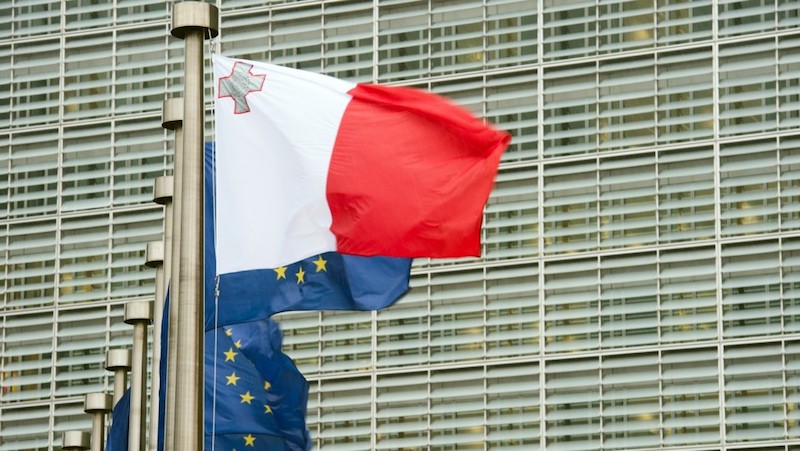Prime Minister Joseph Muscat and his government insist that all is well in Malta. But is it really? According to many it is not.
Last week, the President of the European Parliament Antonio Tajani issued a stern warning to Malta and other EU countries where the rule of law is in peril.
In an interview with Italian daily La Repubblica, Tajani said “We need to be strong and determined, otherwise how can we argue with the likes of (Russian president) Putin and (Turkish president) Erdogan?”
This was only the most recent warning in a litany of indictments against the state of the rule of law in Malta. Other indictments include the overwhelming vote in the European Parliament to investigate the rule of law in Malta, the damning report by the European Parliament’s delegation investigating Malta and the calls by MEPs and by various organisations on the Council of Europe to appoint a special rapporteur on the investigation into Daphne Caruana Galizia’s assassination.
There was more. The anti-corruption body Greco’s decision to visit Malta a year early (citing logistics as the reason), the refusal of an EU country to extradite a person wanted in Malta out of concerns for the safety of the whistleblower and the planned return of the MEP delegation to Malta along with the urgent request by the delegation to meet with European Commission first vice-president Frans Timmermans as well as the head of Europol on the subject of Malta.
Just a few days ago, European Commissioner for Justice, Vera Jourova, said she will be visiting Malta shortly to discuss the need to strengthen the anti-money laundering agency, the FIAU, and “enquire about the state of play of the investigation of the murder of Daphne Caruana Galizia.”
But Tajani and indeed Europe are not alone in their negative assessment of the poor state of the rule of law in Malta.
During the 2017 forensic year speech the Chief Justice delivered a highly critical assessment of the state of the rule of law in Malta. He made reference to the lack of enforcement of laws, the resulting, prevalent and pervasive culture of impunity, and also reminded the police and the Attorney General of their duties, implying that he felt that they were not fulfilling them effectively.
Professor Kevin Aquilina, the Dean of the Faculty of Laws at the University of Malta, also criticised the state of the rule of law in Malta in several publications and interviews in local media, attributing the breakdown of rule of law in Malta to institutional failure, unlike Muscat who claims to have complete faith in the institutions.
“At the moment the rule of law in our country is at the crossroads and it tends to be taken for granted to such an extent that it ends up breached by those same institutions of the state which are called upon to promote, preserve, defend, nourish and safeguard it. I attribute the inadequacies of the rule of law primarily to institutional failure – failure by the institutions of the state to carry out their lawful duties with full respect to the observance of the law,” Aquilina wrote.
Ken Mifsud Bonnici, an international constitutional and institutional lawyer, specialised in public governance and the rule of law, pointed out that: “the ability to vote every five years does not make us a democracy.”
Mifsud Bonnici has advised many national governments, European institutions, UN bodies and Fortune 500 companies and is currently a member of the European Commission’s body of overall legal advisers. He also believes that there is a prevalent institutional failure.
“We have a State where under the Constitution, every constitutional organ or body is controlled by the government of the day (which appoints most of its members and leadership), from the Broadcasting Authority to the Public Service Commission, to the Commission Against Corruption, to the Attorney General and Auditor General. Not a single one of these bodies has the personal, functional or institutional independence to function free from major political interference,” Mifsud Bonnici said.
Rule of law is not a buzz word, or a fancy notion without a precise definition to be bandied and paraded around in a way that obfuscates its true meaning.
According to the World Justice Project, for rule of law to prevail, four principles must be upheld. Accountability, just laws, open government and accessible and impartial dispute resolution.
These four principles are further developed into others that include: the accountability of legislators, the absence of corruption, transparency in decision making, freedom of information, fundamental rights, order and security, openly, publicly and consistently applied laws and the availability of and free, unfettered and equal access to a means to civil redress and criminal justice.
The rule of law is designed to protect basic rights and freedoms, and to treat everyone fairly. It is an essential element of democracy, the market economy, and human rights, enabling fair and functioning societies.
The notions that rule of law is equivalent to what the majority of people believe to be right (mob rule, imposed by force or shows of force) or that rule of law is the mere enactment and enforcing of rules (this happens in dictatorships too) need to be completely dispelled and permanently banished from our thought and culture.
Rule of law prevails in a country only if the above principles are upheld, and in no other circumstances. Period.
Aquilina rightly warned that the rule of law “has been dead and buried in Malta for quite some time now.”
Are all these people and institutions wrong or misguided or as the Labour narrative goes, intent on harming Joseph Muscat’s administration? Certainly not. We have to get over the tribal divisions and pull our socks up. Rule of law might be dead but we need to find ways to resuscitate it and make it work again. Otherwise we will be stuck in the same place for many years to come and no election or mass meeting can make things right.













